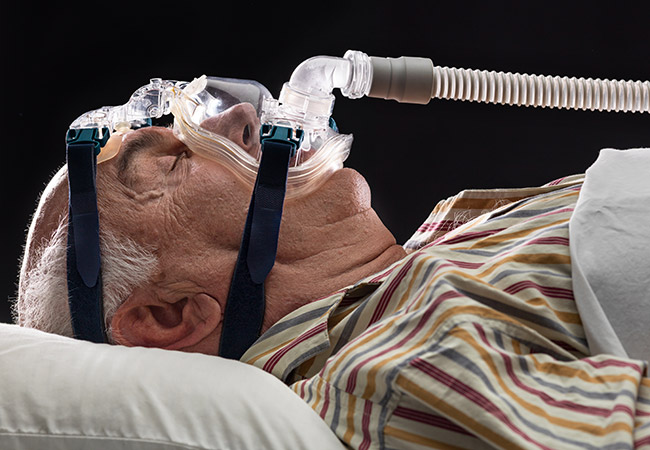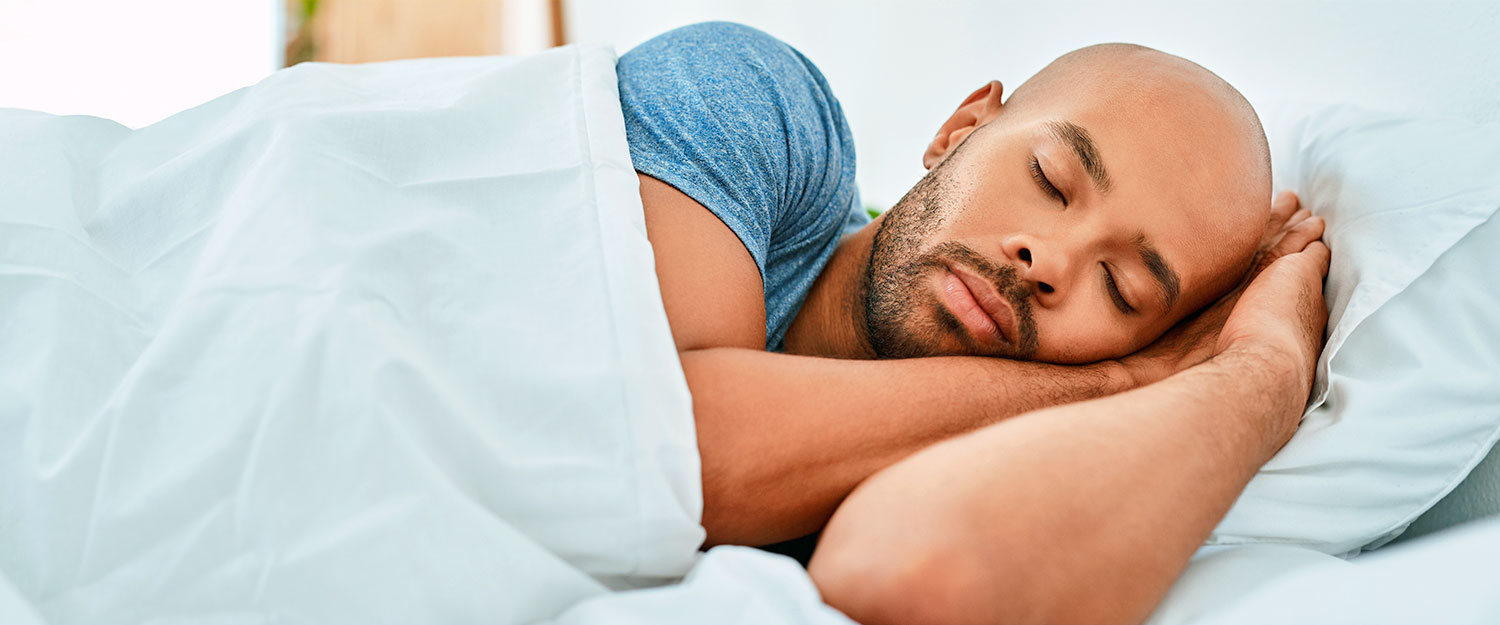Advanced Sleep Therapy - Achieve Deep, Relaxed Sleep
Advanced Sleep Therapy - Achieve Deep, Relaxed Sleep
Blog Article
Reliable Therapy Solutions for Handling Sleep Disorders and Enhancing Relaxing Rest
In the realm of medical care, the monitoring of sleep disorders and the pursuit for peaceful rest are crucial elements of overall wellness. As we navigate the intricate landscape of rest conditions and seek to enhance our sleep experience, a deeper understanding of these treatment remedies may hold the trick to opening a much more refreshing and satisfying restorative trip.
Cognitive Behavioral Treatment for Sleeplessness (CBT-I)
Cognitive Behavioral Treatment for Insomnia (CBT-I) is a structured, evidence-based therapy strategy that concentrates on dealing with the underlying variables adding to sleep disturbances. This sort of therapy aims to customize behaviors and ideas that exacerbate sleeping disorders, eventually advertising healthy and balanced rest patterns. CBT-I generally entails several vital elements, including cognitive treatment, rest limitation, stimulus control, and sleep health education and learning.
Cognitive therapy assists people identify and alter adverse thought patterns and beliefs concerning sleep that might be hindering their capability to drop or stay asleep. Sleep restriction includes restricting the quantity of time spent in bed to match the individual's actual sleep duration, thus increasing rest efficiency (natural insomnia remedies). Stimulation control techniques help develop a strong organization between the bed and rest by encouraging individuals to visit bed just when drowsy and to avoid taking part in promoting activities in bed
Moreover, rest hygiene education concentrates on establishing healthy and balanced rest practices, such as keeping a consistent sleep routine, developing a relaxing going to bed routine, and optimizing the sleep environment. By resolving these aspects thoroughly, CBT-I uses an efficient non-pharmacological intervention for handling sleeplessness and boosting total sleep top quality.
Rest Hygiene Practices
Having actually established the structure of cognitive restructuring and behavioral modifications in dealing with sleeping disorders with Cognitive Behavioral Therapy for Sleeplessness (CBT-I), the emphasis now shifts towards exploring necessary Rest Hygiene Practices for preserving optimum sleep quality and general health.
Sleep hygiene methods encompass a series of routines and environmental elements that can significantly affect one's capability to sleep and remain asleep throughout the night. Regular sleep and wake times, creating a relaxing going to bed routine, and enhancing the sleep atmosphere by maintaining it dark, peaceful, and cool are vital elements of great rest health. Restricting exposure to displays before going to bed, preventing stimulants like high levels of caffeine near to bedtime, and taking part in regular exercise throughout the day can likewise advertise far better sleep top quality.
Additionally, practicing relaxation strategies such as deep breathing exercises or reflection prior to bed can help calm the mind and prepare the body for sleep. By incorporating these rest hygiene techniques right into one's day-to-day routine, individuals can establish a healthy sleep pattern that sustains relaxed rest and overall health.
Leisure Techniques and Mindfulness
Implementing relaxation techniques and mindfulness techniques can play a crucial role in promoting a feeling of tranquility and advertising quality rest. sleep therapy. her explanation These techniques intend to silent the mind, lower stress, and produce an optimum atmosphere for redirected here restful rest. One extensively practiced approach is deep breathing exercises, where individuals concentrate on slow, deep breaths to relax the mind and body. Modern muscular tissue leisure involves tensing and after that launching each muscle mass group, advertising physical leisure. In addition, led imagery can aid move individuals to a peaceful area in their minds, helping in anxiety reduction and enhancing rest quality.
By integrating these methods right into a going to bed regimen, people can signify to their bodies that it is time to prepare and unwind for rest. Generally, integrating relaxation strategies and mindfulness methods can considerably add to handling rest disorders and enhancing total rest high quality.

Medicine Options for Sleep Disorders
After checking out leisure strategies and mindfulness techniques as non-pharmacological treatments for improving sleep quality, it is necessary to think about medicine options for people with sleep disorders. In situations where way of life adjustments and treatment do not supply adequate alleviation, medication can be a useful tool in taking care of rest disturbances.
Frequently suggested medications for sleep disorders consist of benzodiazepines, non-benzodiazepine hypnotics, antidepressants, and melatonin receptor agonists. Antidepressants, such as trazodone, can be helpful for individuals with co-occurring anxiety and rest disturbances - sleep disorder treatment.
It is important for people to speak with a doctor to determine the most ideal drug choice based upon their certain sleep condition and case history.
Light Therapy for Body Clock Law
Light treatment, likewise recognized as go now photo-therapy, is a non-invasive treatment approach used to manage body clocks and enhance sleep-wake cycles. This therapy involves direct exposure to intense light that mimics natural sunshine, which helps to reset the body's inner clock. By subjecting people to particular wavelengths of light, usually in the morning or evening relying on the wanted result, light therapy can properly change the body clock to promote wakefulness throughout the day and enhance relaxed sleep in the evening.
Research study has revealed that light treatment can be especially valuable for people with body clock problems, such as postponed rest phase disorder or jet lag. It can also be practical for those experiencing seasonal affective condition (SAD), a type of depression that commonly happens during the winter season when all-natural light exposure is lowered. Light treatment is generally well-tolerated and can be made use of in conjunction with various other treatment approaches for sleep disorders to optimize results and improve total rest top quality.
Conclusion
Finally, efficient treatment solutions for handling sleep conditions and enhancing peaceful sleep include Cognitive Behavior modification for Sleep Problems (CBT-I), rest health practices, leisure methods and mindfulness, drug options, and light therapy for circadian rhythm regulation. These methods can help people improve their sleep high quality and general health. It is essential to speak with a doctor to figure out one of the most appropriate method for dealing with sleep concerns.
As we navigate the complex landscape of sleep disorders and seek to enhance our rest experience, a much deeper understanding of these treatment remedies might hold the secret to opening a more refreshing and fulfilling restorative trip.
Rest limitation entails restricting the quantity of time spent in bed to match the person's real rest duration, therefore enhancing sleep performance. Consistent rest and wake times, developing a relaxing going to bed routine, and maximizing the rest atmosphere by keeping it dark, quiet, and cool are important parts of great rest health. Light therapy is usually well-tolerated and can be used in combination with other treatment approaches for sleep conditions to maximize end results and enhance overall sleep high quality.

Report this page